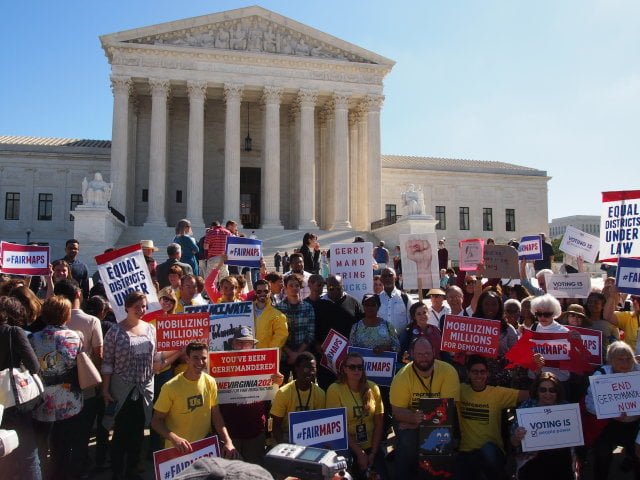 Case: Moore v. Harper 600 U.S.____(2023)
Case: Moore v. Harper 600 U.S.____(2023)
The Supreme Court rejected the independent legislature election theory which considered state legislatures to be independent from state courts. Essentially, proponent’s of the theory argued that state courts did not have the power of judicial review over acts of the legislature that were specifically targeted towards election law. Citing the United States’ long history of state courts having the power of judicial review, Chief Justice Roberts rejected the argument that state legislatures had independent authority to enact election law independent of state court review.
Moore began as a legal dispute over the North Carolina congressional map, drawn by the Republican-controlled legislature in 2021. Multiple organizations and voters challenged the map as politically gerrymandered—meaning it favored Republicans over Democrats. Partisan gerrymandering, while federally constitutional, is not constitutional under the North Carolina State Constitution.
Following the decision in Moore v. Harper, state courts retain their authority to apply state constitutions to the legislature actions. Of course, state courts may not overreach their authority to the extent that they usurp the role of federal courts, but state courts are well within their authority to conduct judicial review of state legislature’s actions regarding election law.
Source: US Supreme Court rejects North Carolina’s ‘independent legislature’ theory
